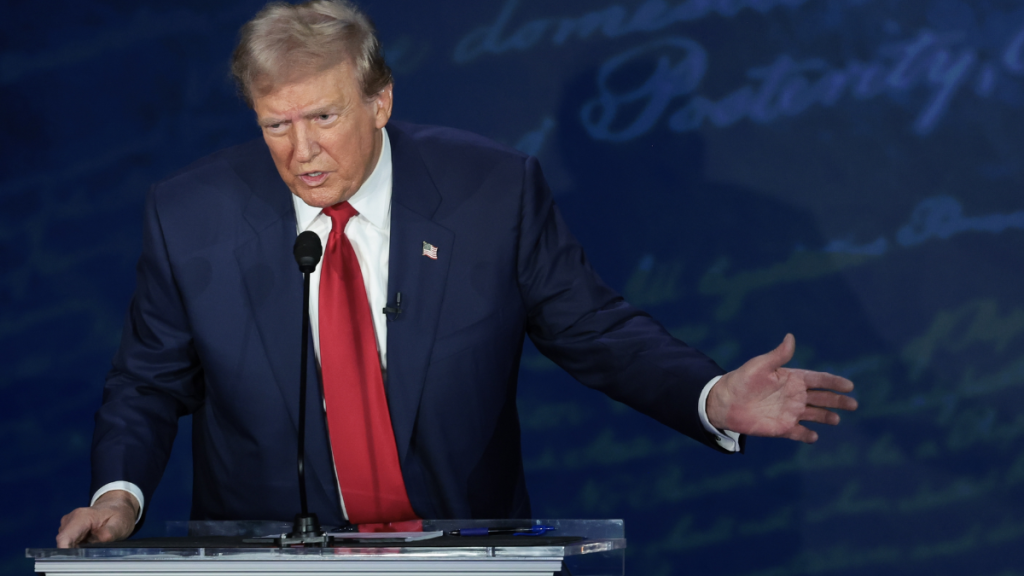Former President Donald Trump has signed a new executive order that formally creates a Presidential Commission on Religious Liberty, marking a bold move to promote and protect religious freedoms across the United States.
The directive underscores Trump’s continued advocacy for faith-based rights in the public square and signals a reinvigorated push to shield religious expression from perceived government overreach.
According to the order, the commission will report directly to the executive branch and include faith leaders, legal experts, and constitutional scholars.
The purpose of the body is to review existing federal policies, make recommendations for preserving religious liberties, and ensure that government regulations do not infringe on religious practices.
Trump, who announced the commission during a speech at a recent Faith and Freedom Coalition gathering, said the move was about restoring “the foundational American principle that no one should be persecuted for practicing their faith.”
Goals of the Commission and Its Policy Reach
The Presidential Religious Liberty Commission will be tasked with examining federal, state, and local regulations that may impede free religious expression.
Trump emphasized that religious groups, whether Christian, Jewish, Muslim, or other, deserve protection under the First Amendment, and should not be marginalized in the name of political correctness or bureaucracy.
Among the commission’s key responsibilities are:
- Evaluating federal agency policies to ensure they do not burden religious institutions
- Proposing legislative or regulatory changes that strengthen First Amendment protections
- Advising federal departments on how to integrate religious freedom into decision-making
- Collaborating with international human rights bodies to promote religious tolerance globally
The executive order also calls for annual reporting, with findings submitted to the president and made available to the public.
Supporters Say Move Defends Constitutional Rights
Religious freedom advocates hailed the executive order as a win for people of faith. Organizations like the Family Research Council and Alliance Defending Freedom have expressed strong support for the commission, citing concerns that traditional religious values are increasingly being suppressed in both public life and the workplace.
Tony Perkins, president of the Family Research Council, said in a statement, “This commission will help ensure that America’s long-standing commitment to religious freedom is not just words in the Constitution, but actively protected in law and policy.”
Supporters argue that recent legal battles involving faith-based adoption agencies, religious exemptions for healthcare providers, and prayer in schools demonstrate a need for clear protections. They believe this commission can help establish legal precedents that secure those rights for future generations.

Critics Warn of Politicizing Religion
However, the move has also drawn criticism from civil liberties groups and church-state separation advocates. The Freedom From Religion Foundation and Americans United for Separation of Church and State both warned that the commission could blur the lines between church and government.
Rachel Laser, president of Americans United, said in a press release, “This executive order is less about protecting religious freedom and more about advancing a narrow religious agenda at the expense of equality and civil rights.”
Critics argue that empowering a government-backed commission with faith leaders at the helm could lead to favoritism toward specific religious views while marginalizing non-believers or minority religions. There are also concerns about how the commission’s recommendations could influence public education, LGBTQ+ protections, and reproductive rights laws.
Context and Broader Impact
Trump’s executive order comes amid growing national debate about religious freedom, especially as it relates to cultural clashes and workplace rights. Over the last decade, legal battles have emerged over businesses refusing services based on religious beliefs, vaccine mandates, and public expressions of faith.
During his presidency, Trump had previously signed executive orders aimed at expanding protections for religious groups, such as the 2017 “Promoting Free Speech and Religious Liberty” order.
That directive instructed federal agencies not to penalize individuals or institutions for expressing religious beliefs, particularly in the context of political speech.
With the formation of the Religious Liberty Commission, Trump is doubling down on that policy approach.
The latest order builds a formal framework for assessing religious rights at all levels of government and suggests that future administrations may be expected to engage more actively with faith-related issues.
Conclusion
Trump’s new executive order establishing the Presidential Religious Liberty Commission is a significant move in the realm of federal policy and faith. Supporters say it represents a vital step in upholding First Amendment rights, while critics worry it may skew toward favoring particular religious ideologies.
As the commission begins its work, its recommendations could shape how religious freedom is defined and defended in American law for years to come.
For more on religious freedom policy and related developments, visit the First Liberty Institute.
Disclaimer – Our team has carefully fact-checked this article to make sure it’s accurate and free from any misinformation. We’re dedicated to keeping our content honest and reliable for our readers.
